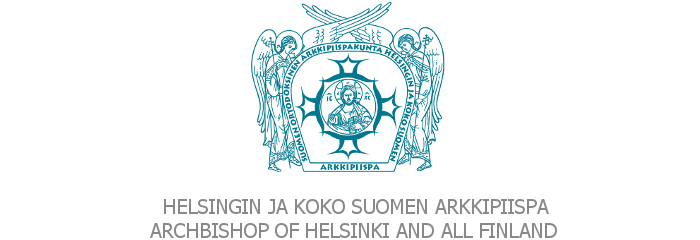Dialogue between Orthodox and Lutheran church
Synaxis of the Hierarchs of the Ecumenical Patriarchate, 29 August – 2 September 2015
Theological Dialogue between the Orthodox Church and the Lutheran World Federation.
Comments by His Eminence Archbishop Leo of Karelia and All Finland:
The proportion of the population that belongs to the Lutheran Church has been gradually decreasing in all Nordic countries. Last year less than 75 percents of Finns belonged to the Evangelical Lutheran state-church of Finland. In 1988 the share was 85. In the Orthodox Church of Finland this figure has remained unchanged, or has been slightly increasing since the late 1980s.
In comparison with other Nordic countries the number of immigrants in Finland has been traditionally quite small. However, the increase has been very rapid since 1995 when Finland joint the European Union. The majority of the immigrants are not Protestants, but Orthodox, Muslim and other non-Christian background.
Dialogue between Orthodox and Lutheran churches has with the profound antropological principles and other dogmatic challenges one important and very burden question. This issue is specially important in the Nordic countries, where the Lutheran state churches are closely linked to political democratic principles.
The question is not the democracy itself or the values it promotes but sometimes an implicit respect of the 'cuius regio, eius religio' principle. In other words: if a decision, concerning even an ethical view of life has been made by a democratic majority in state level, Lutheran thinking underlines that it should be accepted by the church, as public power proceeds from God.
Finland has a strong state-church oriented tradition. It is interesting to note, that there is a lot of healthy criticism in Lutheran circles to Orthodox tsar as supreme ruler of the church, but very little analyse of the exactly same phenomenon when the power was held by a Lutheran king.
In this church-state approach Lutheran priesthood is connected to democratic equality of the sexes and even the principle of matrimonial services offered to same-sex marriages has been raised up. In a Finnish context there seems to be very little understanding towards to Orthodox canon law or to medieval comprehension of the distinct roles of the church and secular power. There seems to be sometimes difficulties in a Finnish Lutheran context to respect spiritual integrity of minority Orthodox people.
There have been unpleasant cases, where a Lutheran vicar has deliberately baptized or buried or distributed Holy Communion to the Orthodox. This does not strengthen mutual respect between our churches.
It is true that we might have good mutual comprehension in common reflecting on the topics such as Church, Grace, Revelation, Salvation, Scripture or Tradition and we have made a significant progress on these issues with the Lutheran church. On the other hand we would like to underline – quoting Florovsky – that controversies that separate, such as secular power and church, most not be hushed up.
On this viewpoint such widely in Lutheran circles expressed ideas as inter-faith communion in mixt Lutheran and Orthodox marriage or blessing of same-sax unions are totally inadmissible and make important obstacles for future dialoque with Lutherans.




